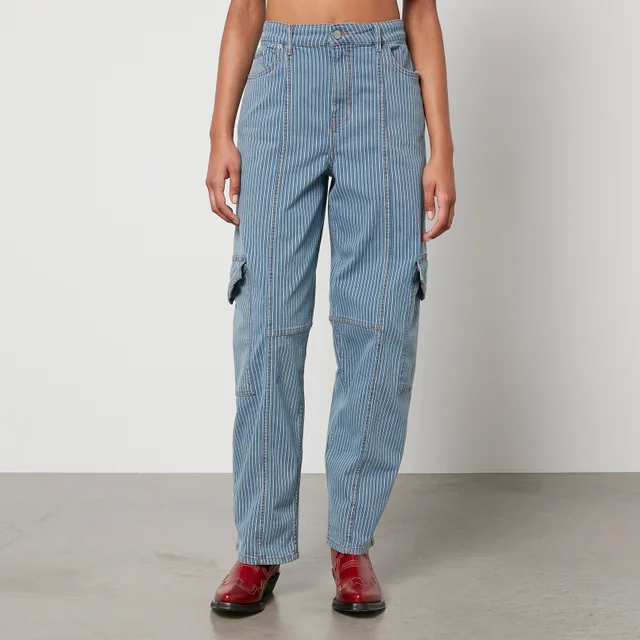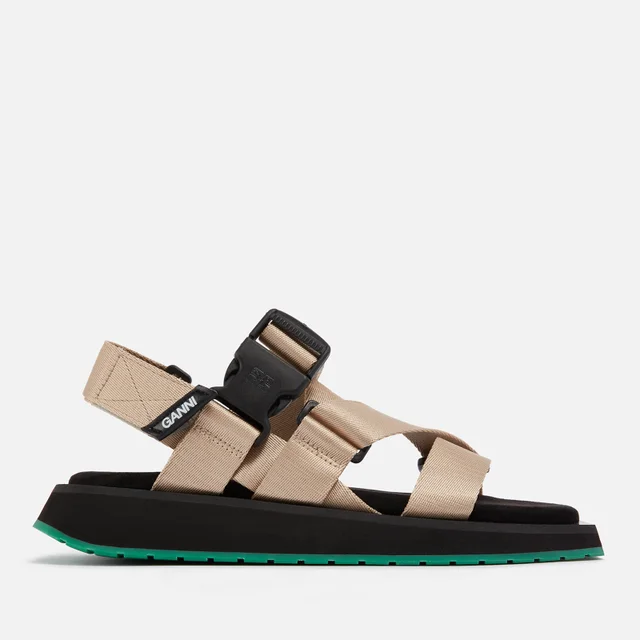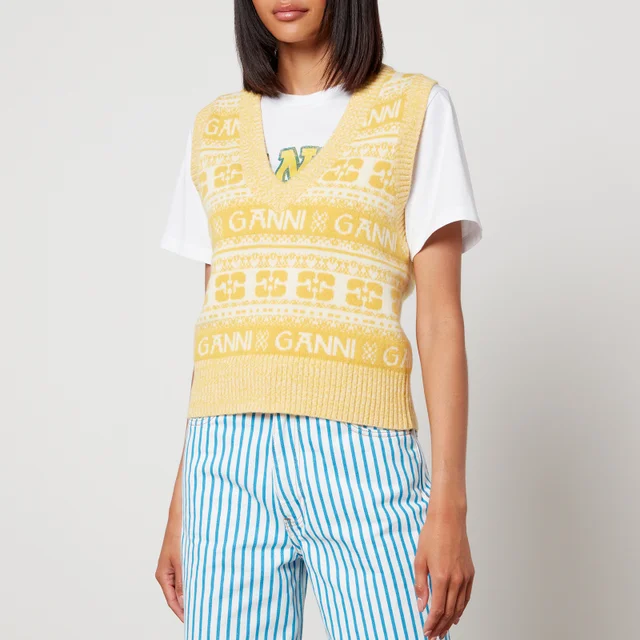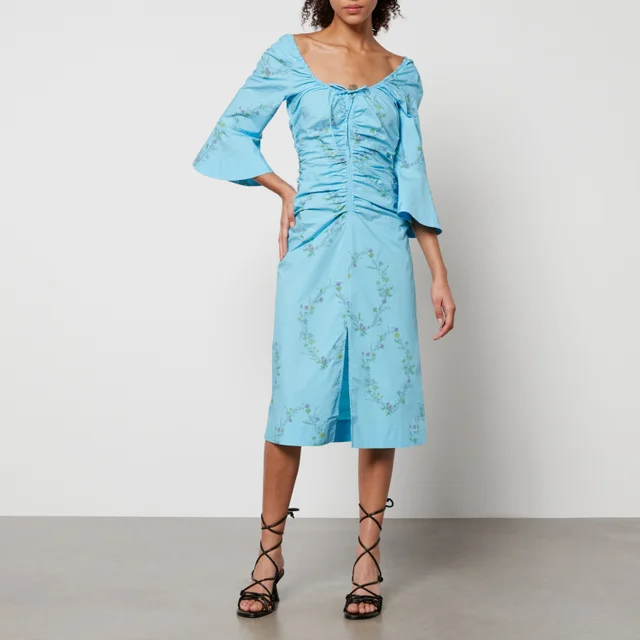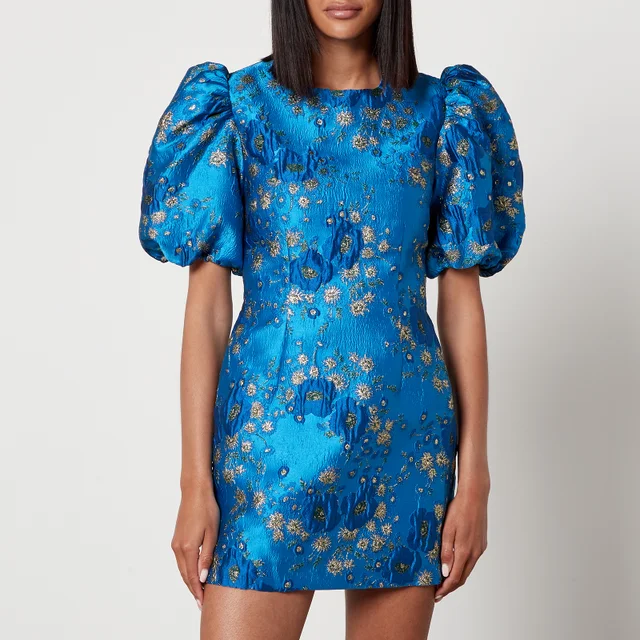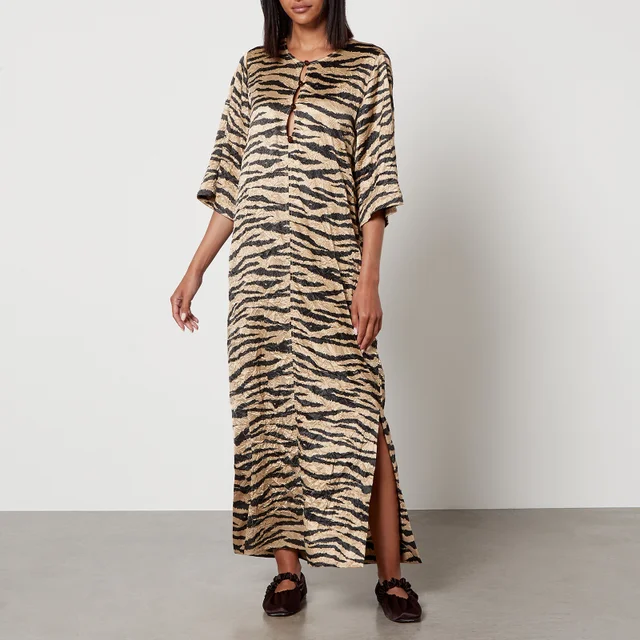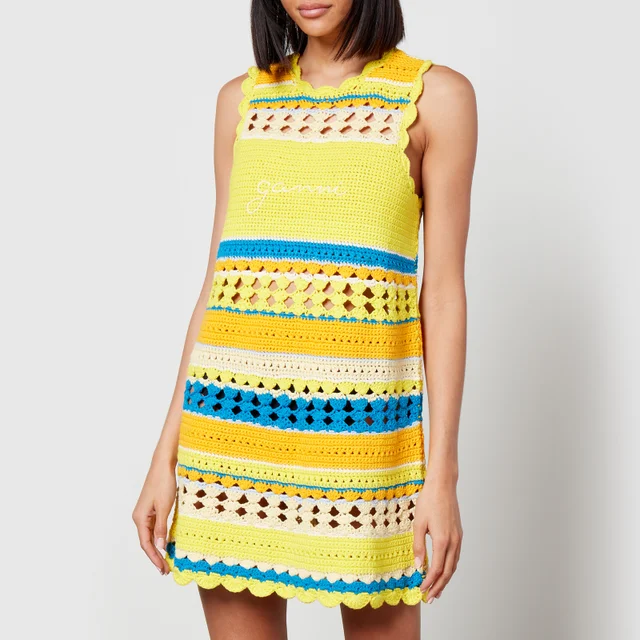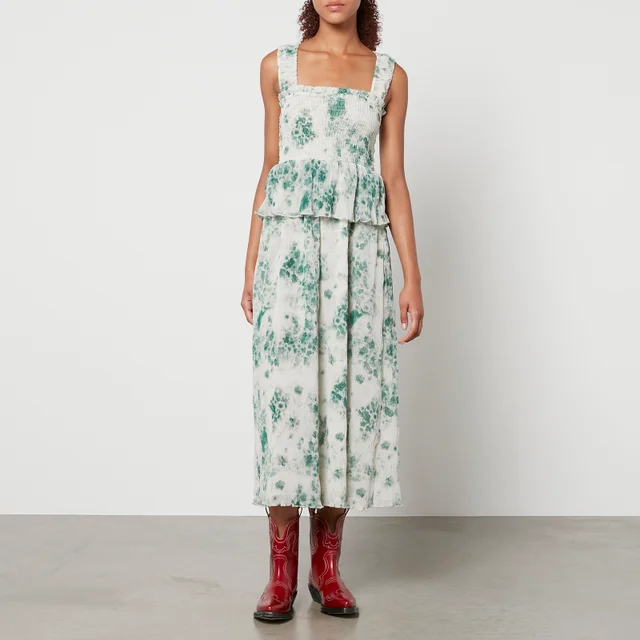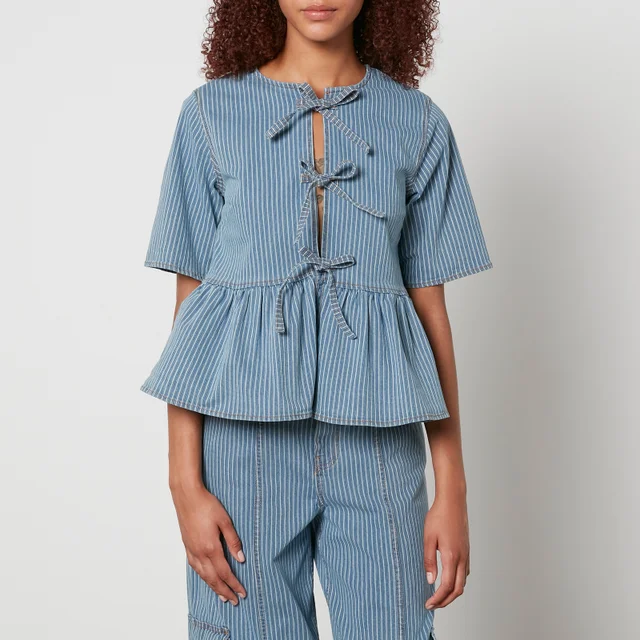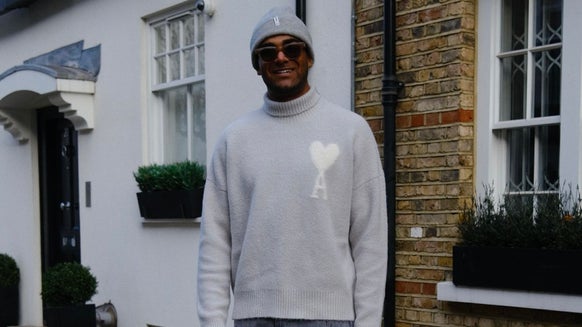Sustainability in Fashion with GANNI
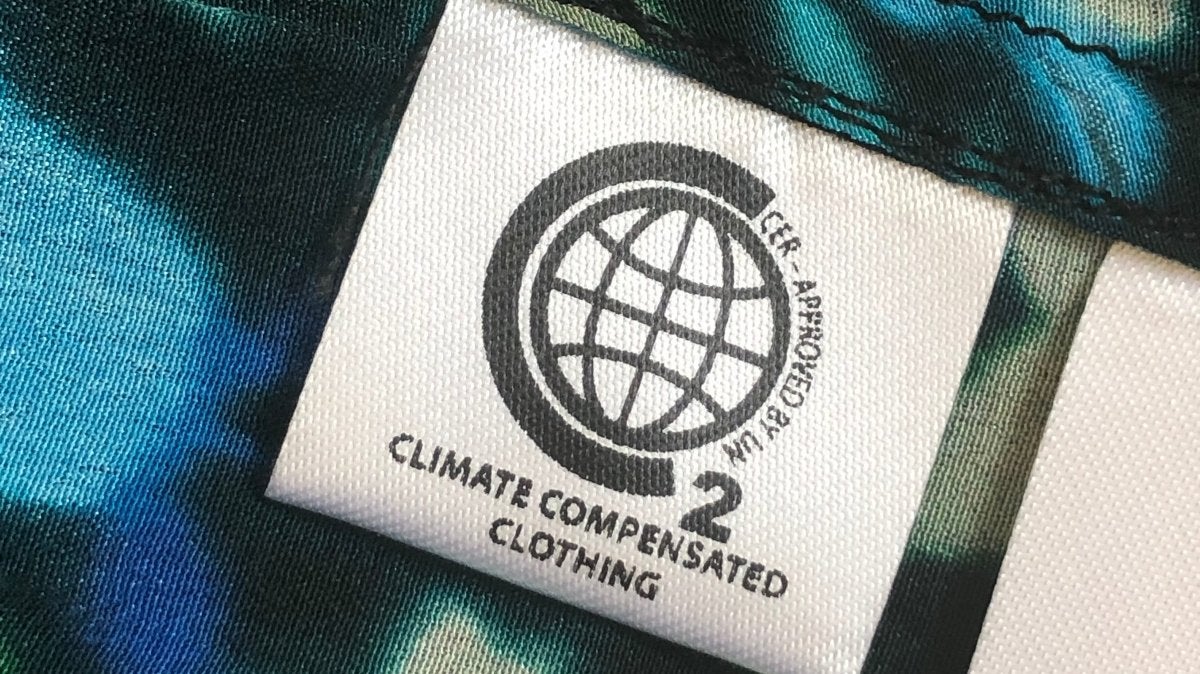
Our favourite Scandinavian fashion house GANNI is famed for its fun, bold and instantly recognisable prints. From GANNI's leopard print dresses to their feminine flowy skirts, the dreamy collections have been coming in hot from the Danish capital since 1999. As the decades have passed, we've seen an increase in luxury designers prioritising sustainability in the fashion industry and creating clothes to last. Rewind a decade and dedicated CSR teams would have been thin on the ground, but nowadays we're seeing more and more designers turn their attention to the environmental effect that their business is having on the planet.

Leading the way in the ethically responsible fashion sector is GANNI, with a small team of passionate individuals helping to make the brand as sustainable as possible through initiatives like offsetting carbon emissions and improving the supply chain's traceability. If you ever wondered if there was a sustainable fashion job for you, we have everything you need to know right here, as we sit down with Head of Responsibility and CSR at GANNI, Lauren.
#1 How long has becoming environmentally responsible been a priority for GANNI?
Back in 2013 we hired our first CSR Manager, which was a pretty rare thing to do for such a small business, outside of production teams - especially in Copenhagen. We were around 20 people in total at the time. It’s always been an underlying concern. In 2018 I joined GANNI to build out a fully-fledged team.
#2 What's the job of the CSR team is at GANNI?
The Responsibility team at GANNI are 100% focused on helping GANNI become the most Responsible version of ourselves. Our Founder, Nicolaj is the visionary and has his finger on the pulse of what new technology and innovations are out there and always puts forward some of the more outlandish ideas. So we can take a tech approach to changing the way we do things.
I head up the team and am responsible for the overall strategic direction. Pippa and Alicja work to ensure we’re working with design and our sourcing team to switch to the most responsible versions of materials, alongside ensuring we meet our 3 global commitments on CO2, plastics and circularity. Soren has recently been appointed and his role focus is on supply chain traceability - we’re working to reach 100% traceability in the supply chain.
#3 Do GANNI use recycled materials?
For our SS20 collection, 45% of all textiles had a sustainable element being either certified, organic or recycled. Polyester makes up about 20% of our material mix and we have a goal that all polyester used going forward should be recycled until we can find an even more responsible alternative to this synthetic material. We’re happy that we’ve managed to ensure our swimwear is 100% recycled and we’re actively working on the rest. We’re prioritising post-consumer recycled polyester as that’s much better than pre-consumer, but of course, post-consumer is more difficult to come by.
Our recent
#4 What has GANNI done to decrease the use of plastic?
In 2019, we signed the New Plastics Economy Global Commitment and reported on our plastic production and usage for the first time, you can read it here. We work to eliminate plastic we don’t need; Innovate so all plastics we do need are designed to be reused, recycled or composted; and circulate everything we use to keep it in the economy and out of the environment. We’re proud to share we are progressing ahead of targets, and expect to meet the goals 4 years earlier by this year.
- In line with the commitment, we have removed 6 types of problematic or unnecessary plastic packaging for the business that account for 3.38% of all our plastics.
- We have switched our e-commerce shipping bag to a post-consumer recycled & recyclable plastic bags, and our retail carrier bags to biodegradable and compostable. Together the packaging accounts for 24% share of all GANNI plastic packaging
- We introduced reusable packaging solution Re-Pack to European customers on GANNI.COM. Over a 6 month trial period 21% of EU online orders were shipped in a Re-pack, saving 2,178 Tco2 of emissions and elimating 363 kg of paper and plastic waste.
#5 What’s your favourite sustainable piece?
I’m loving that we managed to get some of our key shapes like the pleated floral ruffle mini dress made in recycled polyester - it’s still not the ideal solution but we haven’t compromised on the design at all.
I'm also loving the GANNI Software collection which recently launched. It's crafted from recycled EcoLife yarn in a variety of shades.
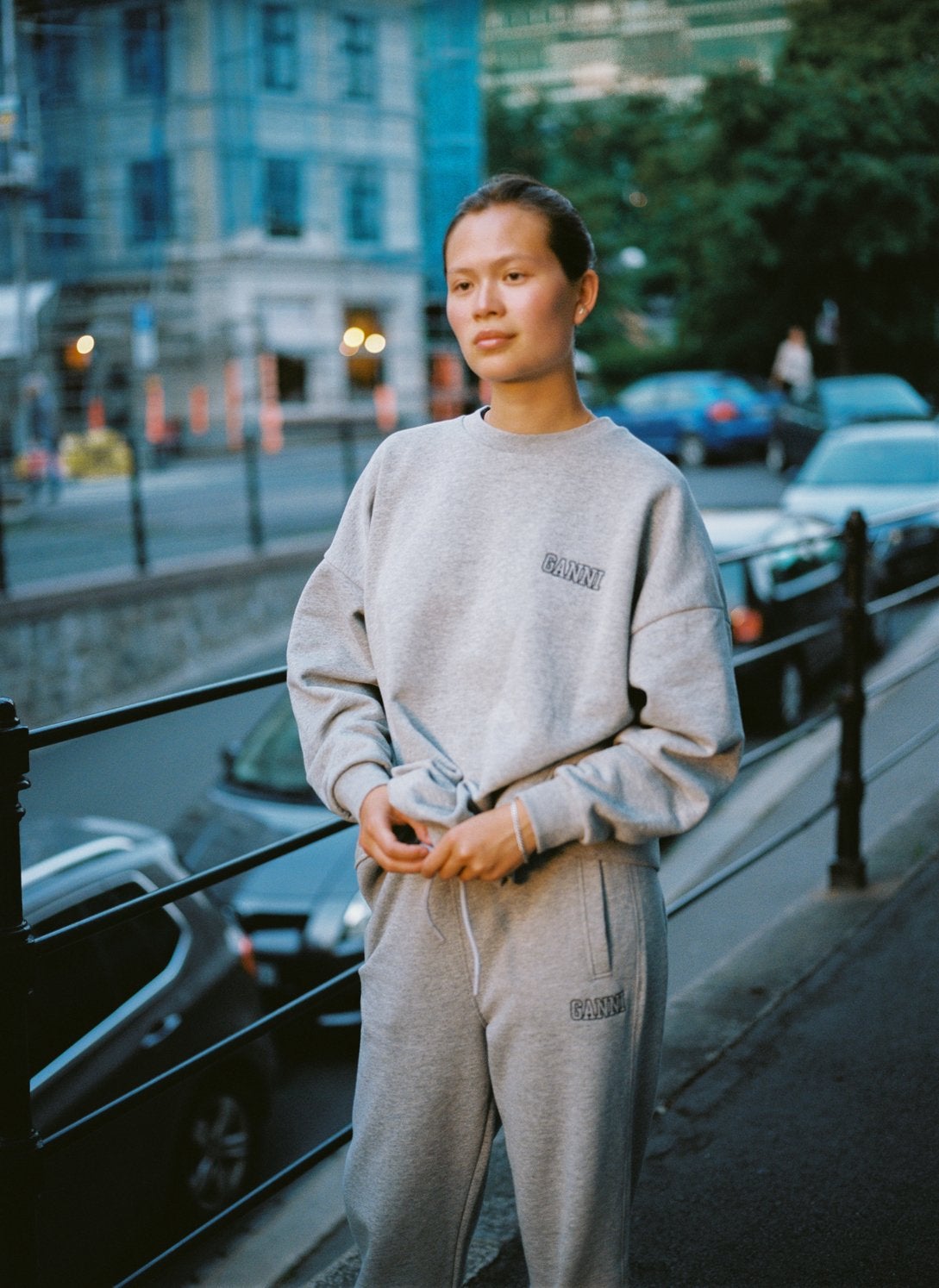
#6 How is GANNI tracing the production line?
In 2019, we set up a Traceability working group and hired Soren on our team to facilitate and accelerate our supply chain traceability in line with our goal of 100% supply chain traceability by 2022. Supply chain traceability to GANNI means we are able to trace and know the origin of products through our value chain and map the connections between all actors in the chain. This year, we aim to have 100% supply chain traceability on:
- stage 1 (garment manufacturing: stitching, assembly & knitting units)
- stage 2 (handling units: dyers, printers, laundry, tanneries)
- stage 3 (fabric mills & yarn mills). Next we will need to trace down to raw material level.
#7 We love your GANNI REPEAT rental service, is it available at the moment?
Our GANNI REPEATservice began as a trial in Denmark. Last year we rolled this out globally, which is super exciting!
We’re carefully monitoring daily developments of the COVID-19 situation worldwide and have enacted the following health and safety measures:
- At our pick and pack, hand sanitizer, face masks and gloves are provided and mandatory for all staff sending out rentals.
- We're limiting the number of people packing your rentals at a time. They will also be following social distancing measures.
- Enhanced cleaning protocols including regular sanitization at pick and pack workstations and continuous cleaning of the packing equipment and surfaces.
- All returned items will be cleaned stored for 72 hours before being resent out.
#8 What is GANNI doing to offset carbon emissions?
We need to start by saying that we do not see offsetting as a solution. For us we have mapping our Co2 footprint since 2016 to better understand where our impact is and then work on what we need to do in order to reduce our footprint.
We climate compensate into UN approved social projects and for the past 3 years have been supporting the Clean Cooking Alliance cookstoves project in Nepal and Ghana, providing clean energy-efficient cookstoves into the family homes.
#9 How important do you find contributing to conferences and summits like the Global Fashion Agenda?
Collaboration within the industry has become a key part of our work on Responsibility. We learn so much more when we can share and collaborate and I’m most proud of our network of Danish fashion brands including Samsoe Samsoe and Wood Wood. We meet every 2 months at one of our offices and just chat about the challenges we face and how we can overcome them together. We’ve been doing it for about 18 months now and it’s honestly so helpful, we’re elevating each other.

#10 What do you see for the future of GANNI and sustainability?
We’ve got some pretty big goals to achieve over the next 3 years. Currently we have set ourselves 44 concrete and tangible goals to achieve by 2023. We’ve broken these out across what we’re calling ‘The 4 P’s’ - People, Planet, Product and Prosperity. You can read about them in our Responsibility Report launching on ganni.com, and you can always follow along on our journey and the challenges along the way on Instagram

The scandi designers to know
With Ganni, ROTATE and Saks Potts flying the Danish flag at Coggles we’re giving you a rundown of the Scandi designers we’re currently swooning over this Copenhagen Fashion Week.

